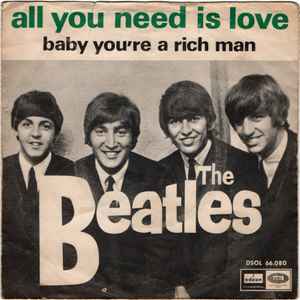One of the silver linings of the covid-19 pandemic was what it reminded us about our longing for relationship, for connection, for human touch. What was suddenly stolen was dearly missed and now cherished. We see the problem of going it alone.
Close connection with family and friends and a sense of belonging are the most important building blocks of a life well lived. Yet today we have forces driving us apart.
One is a culture of excessive individualism and egocentric living, a sense that life is all about us. It’s the trap of being self-absorbed and caught up in our own stuff, without focusing on something larger than ourselves. If we’re fortunate enough to live a comfortable life with our needs met, one danger is that we can “cocoon” into our big homes with big yards with more stuff than we need and wall ourselves off into social isolation.
Here we encounter the emptiness of egocentric living. By contrast, we can pursue the meaningfulness of relational commitment, of being there for others and letting them be there for us.
Burnout and Overwork
Another problem is our culture of burnout, overwork, and work addiction. In his wonderful book, How Will Your Measure Your Life?, written with his colleagues James Allworth and Karen Dillon before he passed away, Clayton Christensen wrote:
“…there is much more to life than your career…. In my experience, high-achievers focus a great deal on becoming the person they want to be at work–and far too little on the person they want to be at home. Investing our time and energy in raising wonderful children or deepening our love with our spouse often doesn’t return clear evidence of success for many years. What this leads to is over-investing in our careers, and under-investing in our families–starving one of the most important parts of our life.”

Take the Traps Test
We all fall into traps in life. Sometimes we’re not even aware of it, and we can’t get out of traps we don’t know we’re in. Evaluate yourself with our Traps Test.
Happiness Is Social
There’s a mountain of research demonstrating the importance of relationships, belonging, and social connectedness to our happiness. Take the Harvard Study of Adult Development, a massive longitudinal study of hundreds of people for about 80 years now. Writing about the study in The Atlantic, Joshua Wolf Shenk reported, “The project is one of the longest-running—and probably the most exhaustive—longitudinal studies of mental and physical well-being in history,” including interviews, questionnaires, medical exams, and psychological tests.
The subjects continue to be studied to this day. They’re evaluated at least every two years by questionnaires, information from their doctors, and interviews. Researchers gathered information about their mental and physical health, career enjoyment, retirement experience, and marital quality.
When asked what he’s learned from the study, psychiatrist and professor George Vaillant (a psychiatrist who led the study for decades) wrote: “Warmth of relationships throughout life have the greatest positive impact on ‘life satisfaction.’… (We now have) “70 years of evidence that our relationships with other people… matter more than anything else in the world…. Happiness is love. Full stop.”
“All you need is love.”
-The Beatles
Sources of Happiness
In another study, researchers sought to identify the characteristics of the happiest 10 percent of people among us. What did they find? Wealth? Beauty? Fame? Fitness? No, the main distinguishing characteristic of the happiest 10 percent: the strength of their social relationships.
In their book, Happiness: Unlocking the Mysteries of Psychological Wealth, Ed Diener and Robert Biswas-Diener write: “…like food and air, we seem to need social relationships to thrive.”
According to summary findings on happiness from Professor Sonja Lyubomirsky and other researchers she’s studied (from her book, The How of Happiness), the happiest people:
- Devote a great amount of time to their family and friends, nurturing and enjoying those relationships
- Are comfortable expressing gratitude for all they have
- Are often the first to offer helping hands to co-workers and others
- Practice optimism when imagining their futures
- Savor life and live in the present moment
- Exercise regularly
- Are deeply committed to lifelong goals and ambitions (e.g., teaching children their values)
- Show poise and strength when coping with challenges
(Note how many of those activities involve relationships.)
According to researchers who evaluated data from the World Values Survey, which surveyed people in more than 150 countries about their life satisfaction, the top factors that account for about three-fourths of reported well-being are:
- social support
- generosity
- trust
- freedom
- income per capita
- healthy life expectancy
(Note how many of these factors are social. The link between life satisfaction and social connection has held up very well across time and place, according to the World Happiness Report 2015.)
“Here’s the most fundamental finding of happiness economics: the factors that most determine our happiness are social, not material…. social connectedness is the most important of all the variables which contribute to a sense of wellbeing in life. And that is true at any age…. We are each other’s safety nets.”
-Jonathan Rauch, The Happiness Curve
Isolation and Going It Alone
Alas, the flip side is also true. Isolation can become a downward spiral, fostering discontent and shame, leading to further isolation. It turns out that going it alone through hard times and transitions, though an instinct for many, is a recipe for more hardship.
“Isolation is fatal…. The burden of going it alone is heavy and limiting—and potentially dangerous…. In fact, social isolation can take up to seven years off of your life. Isolation contributes to heart disease and depression; it influences your immune system and leads to faster aging and advanced health problems.”
-Richard Leider and Alan Webber, Life Reimagined
Truth be told, staying connected to others can be hard at times. It doesn’t help that we have so much political division and distrust, with so many people dismissing or dehumanizing others who have different views. Our age of political contempt, partisan warfare, and take-no-prisoners tribalism is surely not helping.

Quality of Life Assessment
Evaluate your quality of life in ten key areas by taking our assessment. Discover your strongest areas, and the areas that need work, then act accordingly.
Vulnerability and Connection
Many of us also struggle with vulnerability, with asking for help. We fear feeling uncomfortable and a potential loss of social status if we admit that our lives are not Instagram-perfect. So we resort to superficial conversations that feel safer, neglecting the deeper territory of openness and self-disclosure through meaningful dialogue.
“We cultivate love when we allow our most vulnerable and powerful selves to be deeply seen and known, and when we honor the spiritual connection that grows from that offering with trust, respect, kindness, and affection.”
-Brene Brown, researcher, speaker, and author
What’s needed, though, is more of what design thinkers call “radical collaboration,” which can be thought of as collaborating much more than you normally would—proactively seeking mentors, coaches, friends, peer groups, and people to learn from and ask questions.
The problem of going it alone in times of trouble or transition is that it doesn’t work very well. A better approach: reach out and connect. Share. Listen. Help, and accept help. You and your family, friends, and colleagues will be glad you did.
Tools for You
- Traps Test (Common Traps of Living) to help you identify what’s getting in the way of your happiness and quality of life
- Quality of Life Assessment to help you discover your strongest areas and the areas that need work and then act accordingly
- Personal Values Exercise to help you clarify what’s most important to you

Personal Values Exercise
Complete this exercise to identify your personal values. It will help you develop self-awareness, including clarity about what’s most important to you in life and work, and serve as a safe harbor for you to return to when things are tough.
Related Articles
- “Getting Good at Asking for Help“
- “The Most Important Contributor to Happiness“
- “The Power of Relationships in Our Lives“
Postscript: Quotes on Relationships and Not Going It Alone
- “In everyone’s life, at some time, an inner fire goes out. It is then burst into flame by an encounter with another human being. We should all be thankful for those people who rekindle the inner spirit.” -Stephen R. Covey, author, executive, and speaker
- “Belonging begins with safety…. this is a place and a relationship where you feel safe enough to be the real you.” -Jonathan Fields, How to Live a Good Life
- “Going it alone in times of hardship is never a good idea.” -Jonathan Rauch, The Happiness Curve
- “Being in a state of in between means being in some state of loneliness. Being neither here nor there often feels like being nowhere. Which is why connecting with others is so central to getting through one of these times. Human beings like to share.” -Bruce Feiler, Life Is in the Transitions
- “I came to understand that while many of us might default to measuring our lives by summary statistics, such as number of people presided over, number of awards, or dollars accumulated in a bank, and so on, the only metrics that will truly matter to my life are the individuals whom I have been able to help, one by one, to become better people.” -Clayton Christensen, How Will You Measure Your Life?
- “Well, what are you? What is it about you that you have always known as yourself? What are you conscious of in yourself: your kidneys, your liver, your blood vessels? No. However far you go in your memory it is always some external manifestation of yourself where you came across your identity: in the work of your hands, your family, in other people. And now, listen carefully. You in others—this is what you are, this is what your consciousness has breathed, and lived on, and enjoyed throughout your life, your soul, your immortality—your life in others.” -Boris Pasternak, Russian poet and novelist (Doctor Zhivago)

Gregg Vanourek’s Newsletter
Join our rapidly growing community. Sign up now and get monthly inspirations (new articles, opportunities, and resources). Welcome!
++++++++++++++++++++++++++++++
Gregg Vanourek is a writer, teacher, TEDx speaker, and coach on personal development and leadership. He is co-author of three books, including LIFE Entrepreneurs: Ordinary People Creating Extraordinary Lives (a manifesto for integrating our life and work with purpose, passion, and contribution) and Triple Crown Leadership: Building Excellent, Ethical, and Enduring Organizations (a winner of the International Book Awards). Check out his Best Articles or get his monthly newsletter. If you found value in this article, please forward it to a friend. Every little bit helps!


